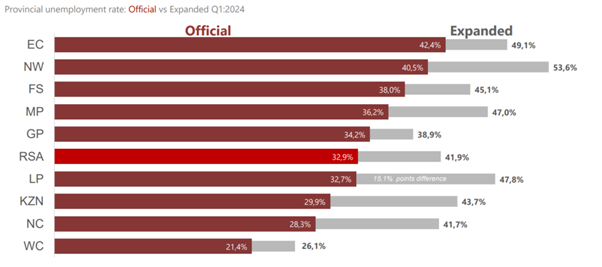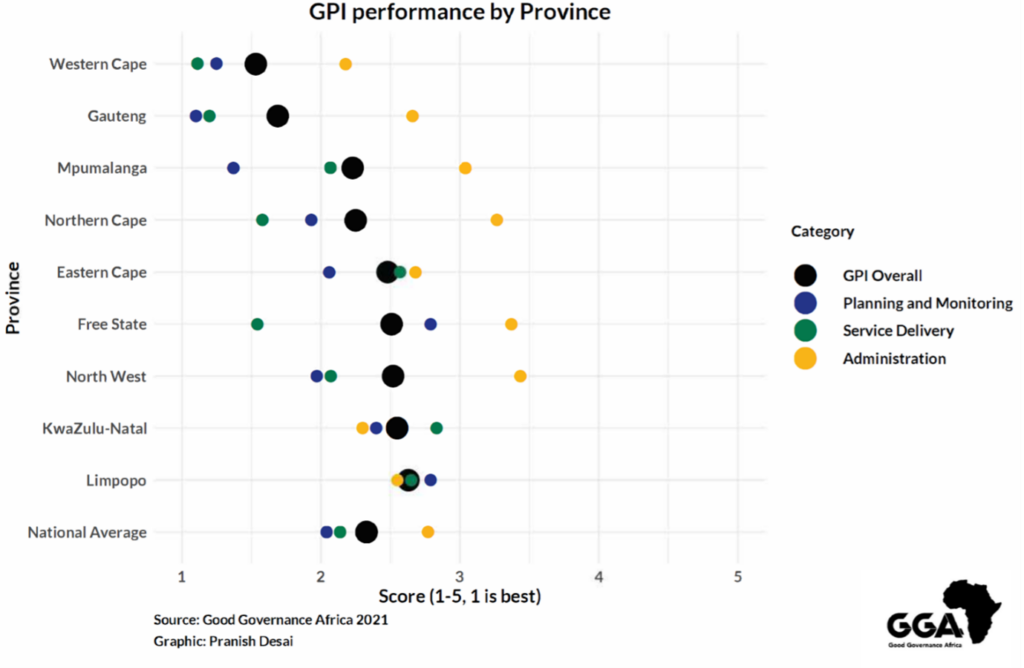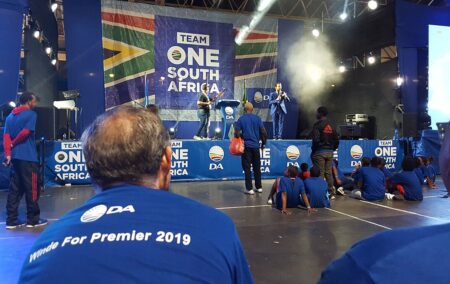Life is often hardest for those doing the best work. Rabble-rousing is easy. The business of clean governance and administration is harder.
Until recently taking up national government, South Africa’s Democratic Alliance (DA) was the most formidable opposition party in the emerging world.
The odds might have been against it in 1994: build a new party from the ground up; slowly chip away at the world’s most respected liberation movement (the African National Congress – ANC); be the guinea pig to see how and if the ANC will concede power in municipalities or provinces (the lower two of South Africa’s three levels of government); do all of this in shabby 10-party coalitions; keep a smile on your face whilst you are smeared in the media.
Many factors circle to make the DA’s trajectory more difficult than it needs to be.
Proportional representation
A first is that SA has among the most extreme versions of proportional representation (PR) anywhere in the world.
Seats are allocated according to the proportion of votes received. Yet in other PR systems, there are minimum thresholds, meaning a party must achieve a certain minimum vote, otherwise its votes are discarded. These range from the 0.67% in the Netherlands, to 3.25% in Israel, to 5% in Germany .
By contrast South Africa has no formal threshold.
Proposals are underway to push through a minimum of 2%. Even if this were implemented, the SA system would still be extremely easy for newcomers to get a foothold.
In other, normalised PR systems, many parties would not have made it to national parliament in 2024. This includes parties who did not achieve the breakthrough in the 2024 that they were claiming, such as ActionSA (1.39%) and Build One South Africa (0.41%).
It also includes parties that regressed significantly in this election, such as Freedom Front Plus (1.48%).
Some of these are DA breakaway parties and have taken issue uncharacteristically with the DA in the media.
Beyond their often-incorrect assessment of a situation, they would be confined to provincial and local parties in most other PR systems in the world.
It is a shame that these small, talent-packed parties did not make their desired inroads. They would do better to join forces, or get behind the DA.
Hyper fragmentation
The South African system lends itself, then, to hyper-fragmentation. I have written on certain benefits of this. A multitude of parties has provided a multitude of party-agent-observer-eyes on each election. That has helped provide clean elections and guarded against one-party dominance.
Yet such fragmentation provides a difficult environment in which to grow. A lot of the DA’s time is spent pointing out historical trends, that if you vote for the newest small party fad, it will likely side with the ANC and stall in the long term.
In the world’s easiest-to-enter-democracy, maintaining numbers, or modest growth is an achievement.
It is not a given that South Africa was going to have a strong opposition to the dominant party. The miraculous transition to a Government of National Unity (GNU) may not have been possible if the opposition was split between 11 parties of 2%.
For example, the opposition in Zimbabwe made serious errors, damaging the country’s long term democratic health.
Media superficiality
A second is media superficiality.
One often sees hysterical anti-DA, anti-Helen Zille headlines, only to read further that there was indeed, another side to the story.
The scale of media onslaught against the DA and Ms Zille is likely to have negatively impacted its prospects.
Ms Zille has been Chairperson of the DA Federal Council since October 2019. Her critics should remember that this is the women who has lived and breathed the party’s rise. Any allegations of racism run aground remembering she was a steadfast anti-apartheid activist.
Her analysis of every situation is well founded.
Ms Zille has stated that she was against the DA governing the City of Johannesburg in 2021 because it was a strategic error to rely on votes from the far left. It is largely for this reason – and not power hunger – that the DA is now cautious in choosing when to say yes to governance, at all levels.
It should do so where the DA is the largest party and/or where its coalition partners are trustworthy. The 2021 stumbled attempt to govern Johannesburg caused enormous damage to the party and voters’ faith in coalitions and democracy.
The DA was right not to govern alongside the ANC in Gauteng in 2024. The Gauteng wing of the ANC acted in bad faith, concealing the few positions it would offer the DA in the provincial cabinet. It would later emerge that the positions offered covered no less than 3% of the provincial budget. Its ability to affect change would have been very low, nosediving any hope for reform in the province, and tainting the opposition.
Good governance
A third is that the DA’s reputation for good governance is well-founded.
DA governance of the Western Cape since 2009 has turned it into a vibrant investment sub-destination, with the country’s lowest unemployment rate at 21.4%.

Statistics South Africa Quarterly Labour Force Survey (QLFS)
Studies also confirm that the best-run municipalities are in the Western Cape and largely DA-governed.

In South Africa, progress also shifts goalposts. Good governance will beget inward migration, which will demand further improvements in service delivery.
And betterment is often rewarded by voters, with increased majorities and improved turnout. This – the story of the city of Cape Town from 2006 – is repeating itself currently in Tshwane (Pretoria).
Forward
The DA may finally achieve its potential growth in the coming years. Some wins are easier than others. It can sell its national government victories and push to open more polling stations abroad.
The municipalities will offer avenues – new strategic partnerships in wards with ally parties can avoid vote splitting. The repeat mistake of dividing the centrist vote should be hammered home.
Millions of voters will finally jump off the fence into the DA garden if turnarounds can be achieved in eThekwini (Durban) and Johannesburg. The party must ensure it has the numbers and reliable partners in these cases. That will be difficult.
More prominent black leaders will finally put paid to the idea of a ‘white party’. The DA also boasts by far and away the most ethnically diverse support base of all parties.
Helen Zille
There is a part of me that wonders if Ms Zille, for all her brilliance, is at times clumsy. I have heard her claim for example that ‘voters only gave us X%’, assuming entitlement to the vote.
She at times resembles more of a school headmistress than a stateswoman. But in an unforgiving environment like South Africa, nice guys will get a kick far into the Indian Ocean. And one wonders if after so many years in the arena, explaining and repeating basics on a few hours’ sleep takes a bit of a toll.
Ms Zille displays a rare combination of integrity, shrewdness, explaining rationale for decisions, and love for her country.
History is littered with cases in which well-intentioned people and entities did not put themselves on the line when it really mattered.
South Africans can know that Ms Zille and the Democratic Alliance are an exception to this rule.
The views of the writer are not necessarily the views of the Daily Friend or the IRR
If you like what you have just read, support the Daily Friend
Image: Lefcentreright, CC BY-SA 4.0 https://creativecommons.org/licenses/by-sa/4.0, via Wikimedia Commons

